Tucked beneath Finland’s capital, hidden behind unassuming entryways in parking garages and sports facilities, lies one of Europe’s most comprehensive civil defense networks: an intricate system of underground bunkers designed to shelter the entire population in the event of war. Built over decades of meticulous planning, these shelters – some of which double as ice hockey rinks or swimming pools – are a testament to Finland’s deep-seated philosophy of preparedness.
This readiness extends far beyond its subterranean refuges. Finland, NATO’s newest member after Ankara’s ratification, has long embraced a “comprehensive security” model that treats national defense as a shared responsibility across all levels of society. In an era of hybrid warfare, disinformation and shifting geopolitical alliances, the Finnish approach is emerging as a potential blueprint for NATO allies, including Türkiye, which finds itself at the crossroads of multiple regional conflicts.
A nation always prepared
For decades, Finland maintained a delicate balancing act, cultivating a pragmatic relationship with Moscow while ensuring its defenses remained robust. The country’s Total Defense Doctrine integrates the military, government agencies, private businesses and even ordinary citizens into national security planning.
Compulsory military service ensures that Finland has a trained reserve force of over 900,000 people – a remarkable figure for a nation of just 5.5 million. Critical infrastructure, from power plants to hospitals, is fortified against cyber and physical threats. Even grocery store supply chains are designed to withstand prolonged disruptions.
During my visit to Helsinki, where we met with several Finnish officials as an international press group, we witnessed that security is everyone’s business there. Foreign Ministry officials elaborated that with the comprehensive security approach, it’s not just the military’s job to defend the country. It’s the job of the entire society.
This whole-of-society approach extends to information warfare. Finnish schools emphasize media literacy, teaching students how to detect misinformation – an issue that has also become a growing concern in Türkiye, where disinformation campaigns have played a role in regional conflicts.
New partner for Türkiye?
Since joining NATO in 2023, Finland has repositioned itself within the alliance’s security architecture. Strategically located in the Baltic region, it shares a 1,340-kilometer (833-mile) border with Russia, making it a front-line state in NATO’s northern flank. But Finland’s role is not just military – it is bringing its security philosophy to the alliance, advocating for greater civilian resilience, hybrid warfare defense and cyber preparedness.
For Türkiye, a NATO member since 1952, Finland’s accession presents opportunities. The two nations have had policy disagreements – most notably over Finland’s past stance on PKK-affiliated groups – but recent diplomatic efforts have strengthened ties between Ankara and Helsinki. Shared security interests could open new avenues for cooperation, particularly in hybrid warfare and counterterrorism. Finland faces Russian cyber and disinformation campaigns, while Türkiye battles asymmetric threats from the PKK/YPG. Intelligence-sharing and cyber defense collaboration could benefit both nations. Moreover, defense industry partnerships are on the agenda with Finland now integrated into NATO’s defense infrastructure, and opportunities exist for cooperation in areas where Türkiye has expertise, such as drone technology and military hardware. Also, on the Black Sea-Arctic Security Nexus, there is potential. Finland’s security priorities in the Arctic parallel Türkiye’s in the Black Sea. Both nations could collaborate on maritime security and strategic energy corridors.
The OSCE and Ukraine
Finland’s strategic pivot is not just military. In 2025, it assumed the rotating chairmanship of the Organization for Security and Cooperation in Europe (OSCE). This Cold War-era institution includes both NATO and non-NATO members, including Russia. The OSCE is one of the few remaining diplomatic channels between the West and Moscow, and Finland’s leadership will test its ability to navigate a fractured geopolitical landscape.
As the war in Ukraine continues with no immediate end in sight, Finland sees the OSCE as a key platform for future conflict resolution efforts. Terhi Hakala, Finland’s OSCE ambassador, underscored the organization’s enduring importance: “The OSCE is more needed than ever. When the war ends, the organization will play a significant role. We are counting on Ankara to settle the conflict and continue support for the OSCE.” Hakala reiterated that the OSCE secretary-general is currently a Turkish diplomat, Feridun H. Sinirlioğlu, who is very experienced.
Türkiye, which has positioned itself as a mediator between Russia and Ukraine – negotiating the Black Sea grain deal and facilitating prisoner exchanges – could play a central role in future peace talks under the OSCE framework.
Similarly, being asked how ties are seen with Türkiye on security defense, Outi Holopainen, under-secretary of state for foreign and security policy, told Daily Sabah: “Of course, we are allies in NATO. We have already realized that it has added a new flavor also to our bilateral relations. I can say that our bilateral relations have been very good while there are very well-established links and fields of cooperation.”
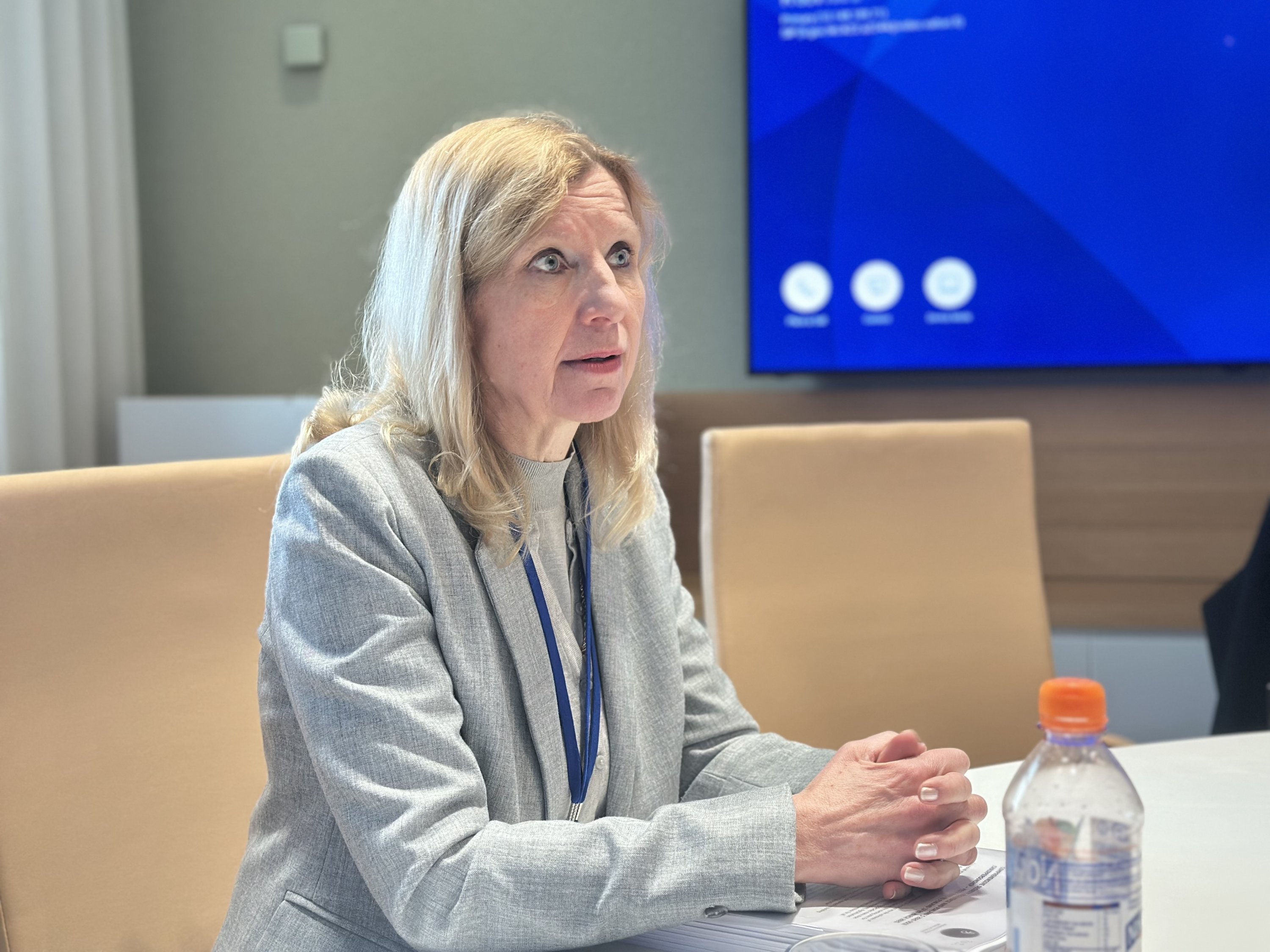
To give an example, she cited coordination between the foreign ministries where frequent exchanges and different dialogues are ongoing.
“But now, exactly during these past days and week, when we are thinking of how we can help Ukraine out of the war without losing and stay strong to make sure it remains safe also in the future, we need the whole international community and especially our friends and allies in Europe,” Holopainen continued. “We know that the U.S. expects that the others do more. And now we have seen that Türkiye is a very active interlocutor in this group where we are trying to figure out what to do next.”
Saying that Türkiye has huge military capabilities and other strategic assets, Holopainen added: “We really appreciate working with Türkiye in this setting. It can be a meaningful player.”
Could Türkiye adapt Finland’s model?
While Türkiye and Finland have vastly different geopolitical realities, some elements of the Finnish security model could be relevant for Ankara’s long-term security planning. Türkiye, already familiar with integrating civilian institutions into national security – particularly in response to terrorism and natural disasters – could benefit from expanding public-private security partnerships, particularly in safeguarding critical infrastructure. It could also focus on enhancing media literacy programs to counter disinformation – an urgent need as most of the elderly population lack the skills to differentiate between real and fake news on social media, and strengthening civil defense infrastructure, including multipurpose urban shelters that could serve both military and humanitarian purposes. Only Helsinki itself boasts approximately 5,500 shelters, one of which, the Merihaka bedrock civil defense

shelter, we visited ourselves.
Finland’s entrance into NATO brings with it a distinctive security doctrine – one that prioritizes societal resilience as much as military strength. As the country prepares to lead the OSCE, its role as a diplomatic bridge in European security will be tested.
For Türkiye, a NATO member at the center of multiple security challenges, Finland’s whole-of-society approach to defense presents both lessons and opportunities. Whether in military collaboration, cyber defense or diplomatic conflict resolution, Ankara and Helsinki may find that their security concerns are more aligned than they once seemed.




























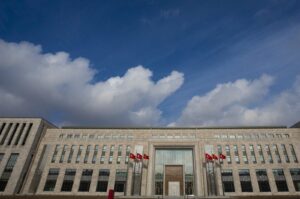


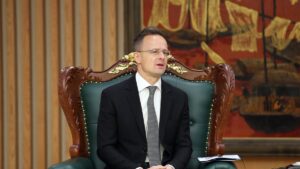
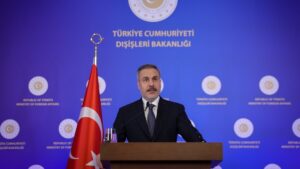
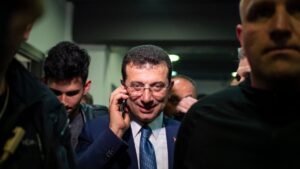




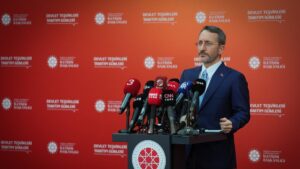





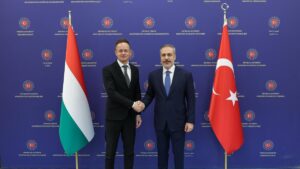
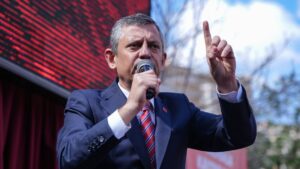

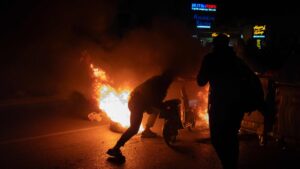
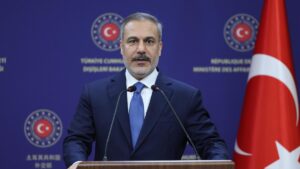
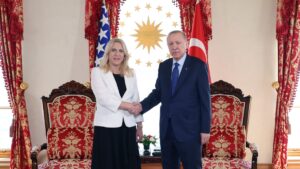
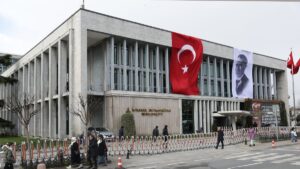

Be First to Comment